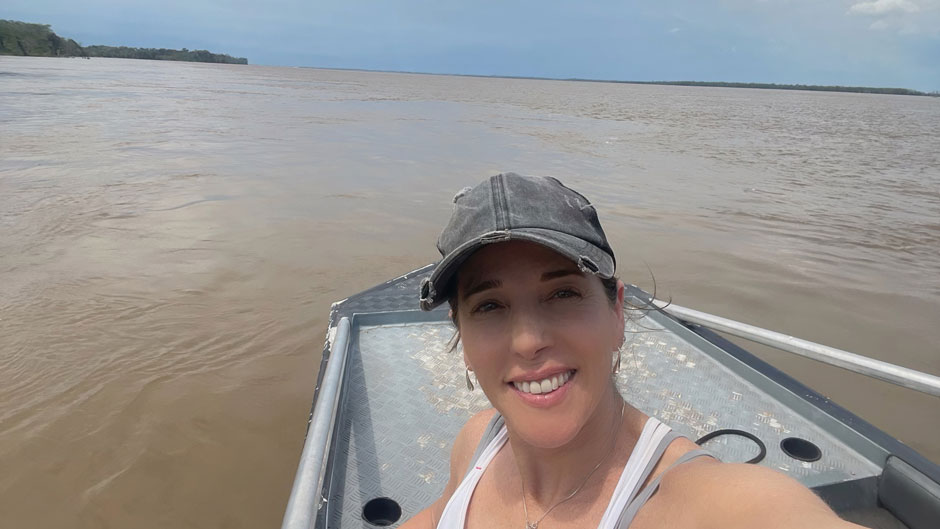Throughout her career, Tracy Devine Guzmán, an associate professor of Latin American studies in the University of Miami College of Arts and Sciences, has worked in several disciplines, but she has held on to the belief that dominant societies have much to learn from Indigenous ways of being in and thinking about the world, which are often expressed through Indigenous languages.
Devine Guzmán, a faculty member in the Michele Bowman Underwood Department of Modern Languages and Literatures, has dedicated much of her career to studying Indigenous cultures, histories, and languages, aiming to help build a more empathetic and equitable society in the process. Her research and teaching draw on cultural history, political theory, and cultural production to examine constructions of race and ethnicity across Latin America and how they intersect with environmentalism. Devine Guzmán’s background in global languages makes this work possible.
“Throughout my formal education, I was interested in global politics and peace studies, and I always believed that being able to see the world through languages other than my own was key to understanding both what was going on and other peoples’ perspectives about what was going on,” she said.
With the assistance of a Fulbright grant, Devine Guzmán will conduct research on Indigenous land rights at the Federal University of Mato Grosso in Brazil toward the end of this academic year.
“My project, ‘Indigenous Citizenship Rights and Environmentalism in Mato Grosso,’ examines how Indigenous knowledges regarding ecological wellbeing can inform public and private policy initiatives to the benefit of Native and non-Native peoples,” Devine Guzmán said. Alongside a research team that includes Indigenous researchers and students from the Federal University of Mato Grosso, Devine Guzmán will study the relationship between Indigenous rights and land use in Mato Grosso since the promulgation of Brazil’s 1988 constitution.
This Fulbright project builds on Devine Guzmán’s 30 years of research in South America and her ongoing efforts to help students understand the importance of acknowledging Indigenous histories and epistemologies, including environmental practices.
Devine Guzmán has worked for nearly two decades to center Indigenous voices at the University in areas including politics, history, the environment, and cultural production. She co-founded the University’s Native American and Global Indigenous Studies (NAGIS) program, which is now directed by Raymond Orr, the Elizabeth B. White Endowed Chair and Professor of Political Science.
“Alongside many other faculty at UM, I have worked to grow Indigenous studies and encourage the administration to hire Indigenous faculty,” Devine Guzmán said. “NAGIS was born of a moment when the University of Miami sought to expand social justice initiatives on campus in the aftermath of George Floyd’s murder. We hope that commitment will continue to grow in the years to come.”
Through her Fulbright project, Devine Guzmán hopes to develop a symbiotic exchange between students at the Federal University of Mato Grosso and students at the University of Miami.
“I applied to the Fulbright to support an extended period of collaborative research with colleagues in Brazil who share my interest in Indigenous histories and Indigenous environmentalism,” Devine Guzmán said. “I aim to work with Indigenous and non-Indigenous scholars and students and to conduct field research in Mato Grosso state and beyond.”
Devine Guzmán hopes this work will help create greater awareness of Indigenous perspectives on environmental care while drawing attention to the precarious situation of Native communities in Brazil, whose land rights are continually under threat.
“By identifying legal, political, and social mechanisms that uphold Indigenous wellbeing, as well as environmental wellbeing, we can propose models for replicating these outcomes and help promote the critical message that Indigenous knowledges and lifeways matter not only to Native peoples, but also to members of the dominant society of Brazil and beyond,” she said.

